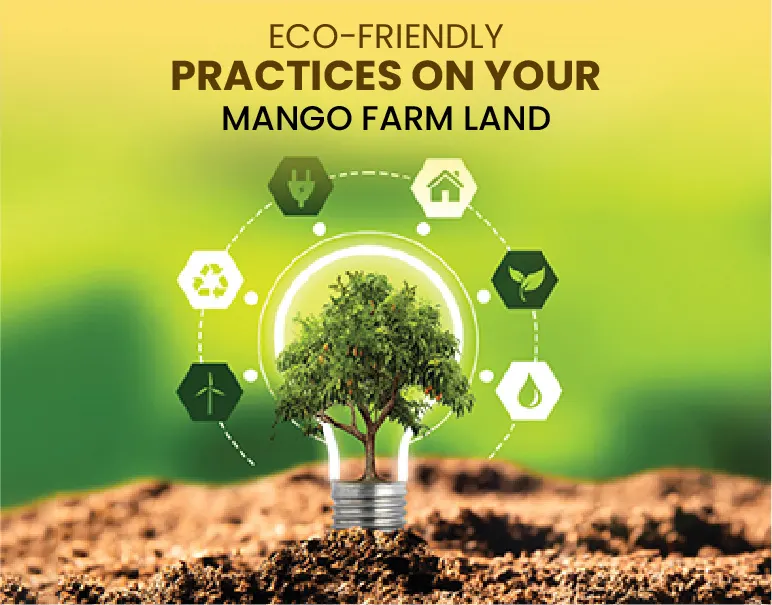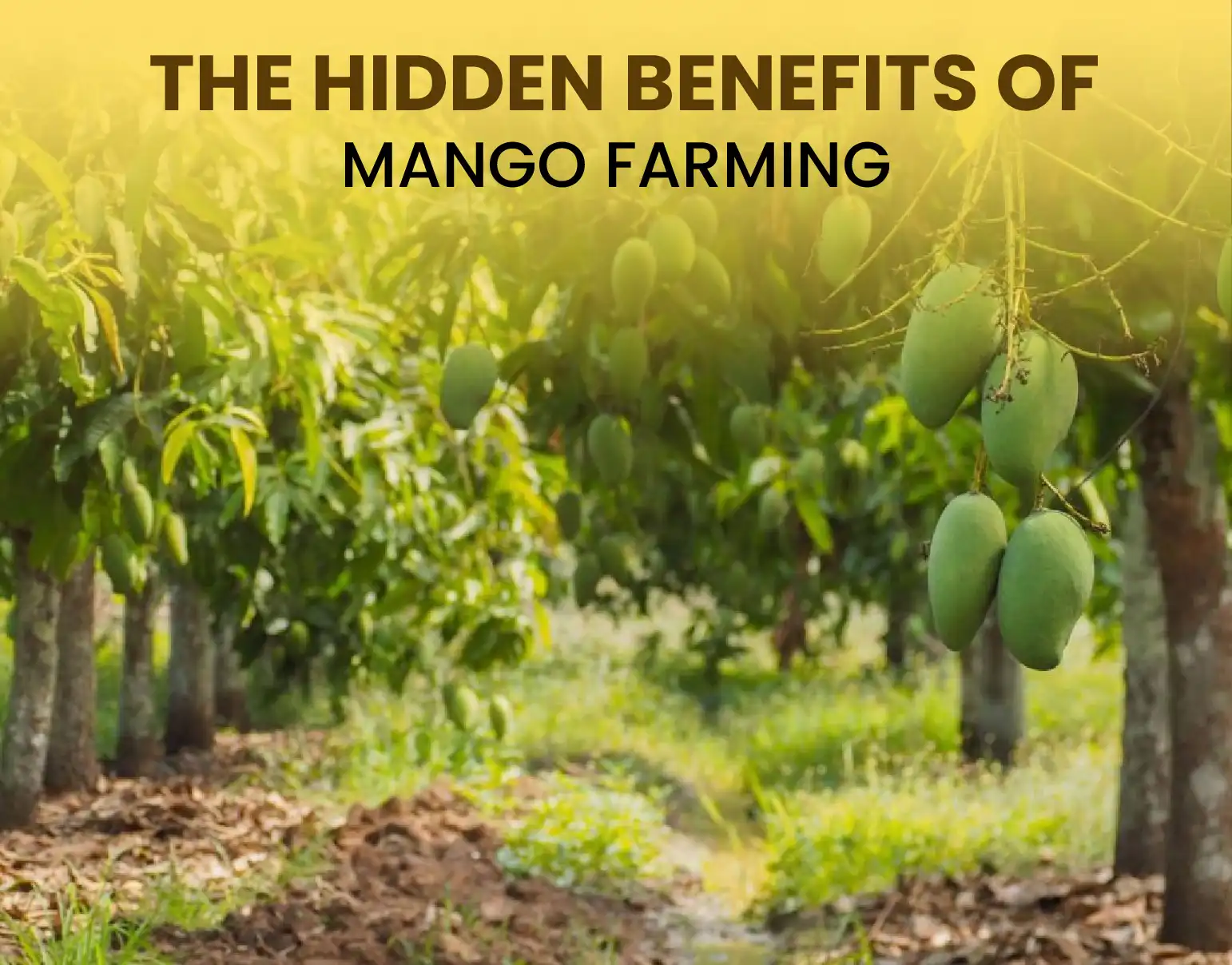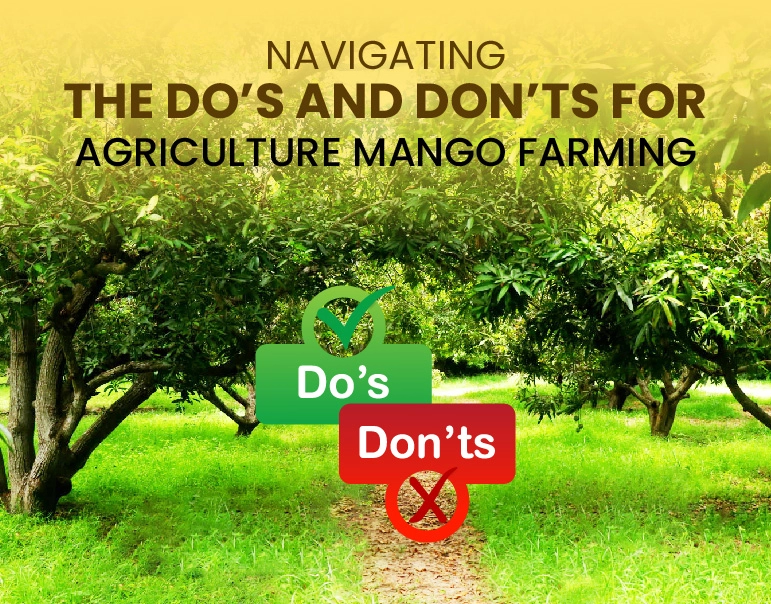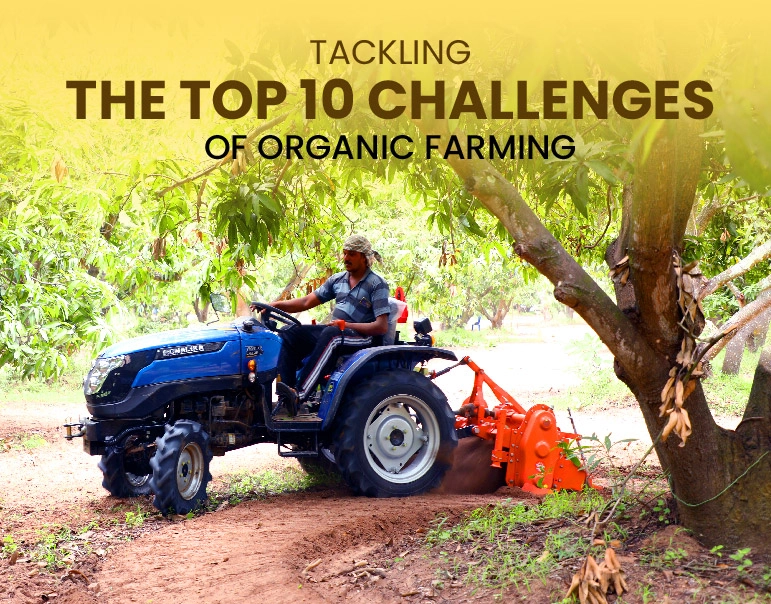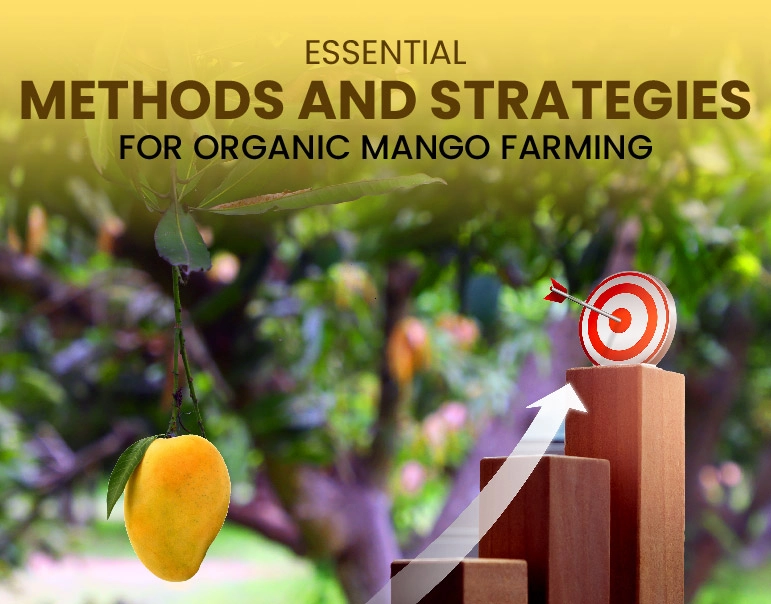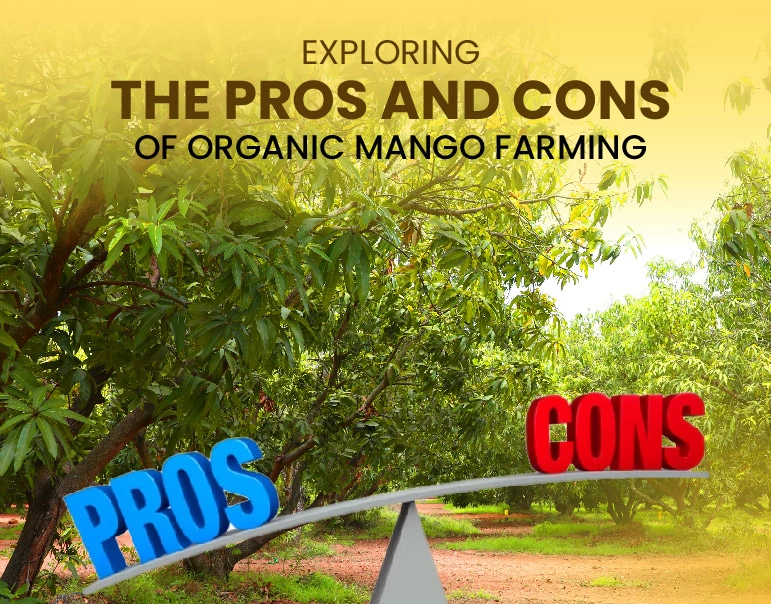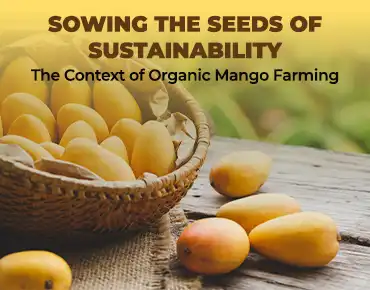Why Choosing Organic Farming is Essential for a Greener Tomorrow
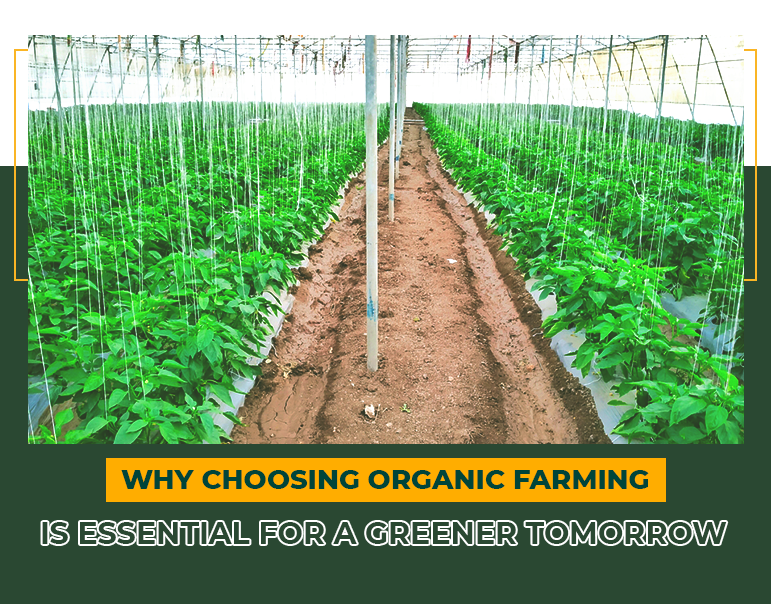

Organic farming isn't just a sustainable way to grow food; it's also a promise to protect the environment, make the land healthier, and lower our carbon footprint. Adopting organic farming methods has become more important for a greener future as the world's population grows and environmental worries grow. This is why organic farming is important for the environment.
Taking care of the land is one of the best things about organic farming. Traditional farming often uses synthetic fertilizers and pesticides. Over time, these can deplete the earth of its nutrients and cause it to wash away. On the other hand, organic farming encourages the use of natural products like compost and cover crops. These improve the soil's health, make it more fertile, and make it better at holding water. A healthy earth is important for long-term farming that will ensure food security in the future.
Conventional farming uses a lot of man-made chemicals, such as pesticides, herbicides, and fungicides. These chemicals can be hazardous for both people and the earth. These toxins can get into water sources, hurt plants and animals, and end up in the food chain. Organic gardening controls pests and diseases without the use of man-made chemicals. Instead, natural methods are used. Cutting down on the use of chemicals not only helps the environment but also makes food better for people to eat.
By making the environment healthier, organic farming encourages biodiversity. Organic farms are safe places for beneficial bugs, pollinators, and wildlife to live because they don't use chemicals that are harmful for them. Crop rotation and intercropping, among other farming methods, contribute to the creation of a diverse environment, making diseases and pests less likely to affect it. A healthy ecosystem depends on a lot of different kinds of plants and animals. Organic farming helps protect many plant and animal types.
Water, a resource that agriculture primarily uses, depletes quickly. Improving the structure of the soil and making it better at holding water are two ways that organic farming helps save water. Using organic mulches, cover crops, and reducing tillage reduces the need for excessive watering. These practices help keep the soil wet. This is particularly crucial during periods of water scarcity or drought.
Organic farming has the potential to drastically cut climate change emissions. Organic farming helps to collect and store CO2 from the atmosphere by increasing soil carbon sequestration. This procedure reduces the total concentration of greenhouse gases, which contribute to global warming. Furthermore, organic farms consume less energy due to the lack of synthetic inputs, lowering their carbon footprint even more.
As global food demand grows, we must move to more sustainable farming methods. Organic farming promotes sustainable food production by emphasizing long-term soil health, ecosystem preservation, and minimal environmental impact. By purchasing organic products, consumers help to create a more sustainable food system by supporting farmers who value the environment over short-term profits.
The benefits of organic farming extend beyond the environment; they also impact human health. Studies have shown that organic foods tend to have higher levels of certain nutrients, including antioxidants, compared to conventionally grown produce. By avoiding synthetic pesticides and fertilizers, organic farming also reduces the exposure of consumers to harmful chemicals. This results in healthier food choices that support overall well-being.
Organic farming is beneficial for more than just the earth; it's also beneficial for people's health. Studies have shown that compared to regularly grown produce, organic foods tend to have higher amounts of some nutrients, such as antioxidants. Because organic farming doesn't use synthetic pesticides and fertilizers, it protects people from exposure to dangerous chemicals. This leads to better food choices that are better for your health as a whole.
Although organic farming requires a more hands-on approach, it allows farmers to diversify their revenue streams. Organic products are frequently more expensive on the market, and with rising consumer demand, farmers can benefit from increased profit margins. Furthermore, organic farming minimizes dependency on expensive synthetic inputs, resulting in long-term cost benefits.
Organic farming tends to focus more on the local area than industrial farming, which can have global supply lines that harm local economies. Towns can obtain locally grown and environmentally friendly food by supporting organic farmers. This can lead to job creation and economic growth in rural areas. Organic farming also cuts down on food miles, which lowers carbon emissions linked to transportation.
Choosing organic farming is a strong way to ensure a better tomorrow. Organic farming is beneficial for the environment, people's health, and society as a whole in many ways. It protects the health of the land, cuts down on chemical use, increases biodiversity, and slows down climate change. As the world changes quickly, there are many problems to solve. However, organic farming offers a bright and healthy future for farmers and the planet. We help make the world healthier, more resilient, and able to last by promoting organic farming.
People are moving toward organic farming, which isn't just a trend but also an important step toward a better future. For a better future, accept change and back organic farming.
